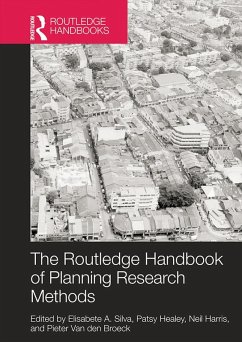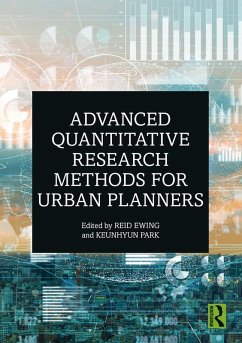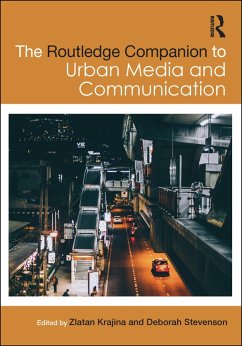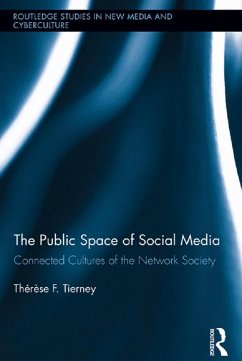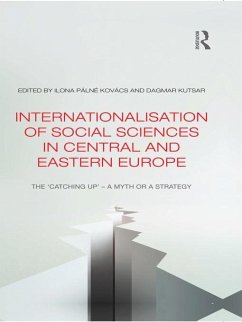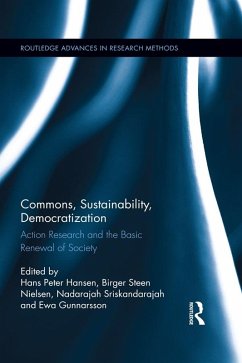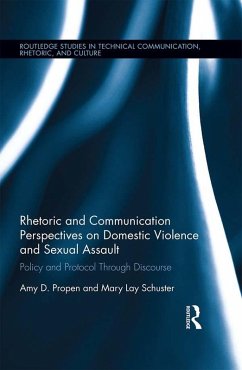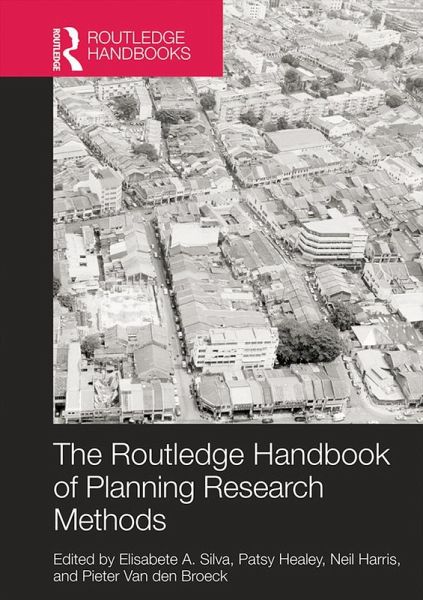
The Routledge Handbook of Planning Research Methods (eBook, PDF)
Versandkostenfrei!
Sofort per Download lieferbar
54,95 €
inkl. MwSt.
Weitere Ausgaben:

PAYBACK Punkte
27 °P sammeln!
The Routledge Handbook of Planning Research Methods is an expansive look at the traditions, methods, and challenges of research design and research projects in contemporary urban planning. Through case studies, an international group of researchers, planning practitioners, and planning academics and educators, all recognized authorities in the field, provide accounts of designing and implementing research projects from different approaches and venues. This book shows how to apply quantitative and qualitative methods to projects, and how to take your research from the classroom to the real worl...
The Routledge Handbook of Planning Research Methods is an expansive look at the traditions, methods, and challenges of research design and research projects in contemporary urban planning. Through case studies, an international group of researchers, planning practitioners, and planning academics and educators, all recognized authorities in the field, provide accounts of designing and implementing research projects from different approaches and venues. This book shows how to apply quantitative and qualitative methods to projects, and how to take your research from the classroom to the real world. The book is structured into sections focusing on
Beginning planning research
Research design and development
Rediscovering qualitative methods
New advances in quantitative methods
Turning research into action
With chapters written by leading scholars in spatial planning, The Routledge Handbook of Planning Research Methods is the most authoritative and comprehensive handbook on the topic, providing both established and ground breaking coverage of spatial planning research methods. The book is an invaluable resource for undergraduate and graduate level students, young professionals and practitioners in urban, regional, and spatial planning.
Beginning planning research
Research design and development
Rediscovering qualitative methods
New advances in quantitative methods
Turning research into action
With chapters written by leading scholars in spatial planning, The Routledge Handbook of Planning Research Methods is the most authoritative and comprehensive handbook on the topic, providing both established and ground breaking coverage of spatial planning research methods. The book is an invaluable resource for undergraduate and graduate level students, young professionals and practitioners in urban, regional, and spatial planning.
Dieser Download kann aus rechtlichen Gründen nur mit Rechnungsadresse in A, B, BG, CY, CZ, D, DK, EW, E, FIN, F, GR, HR, H, IRL, I, LT, L, LR, M, NL, PL, P, R, S, SLO, SK ausgeliefert werden.




